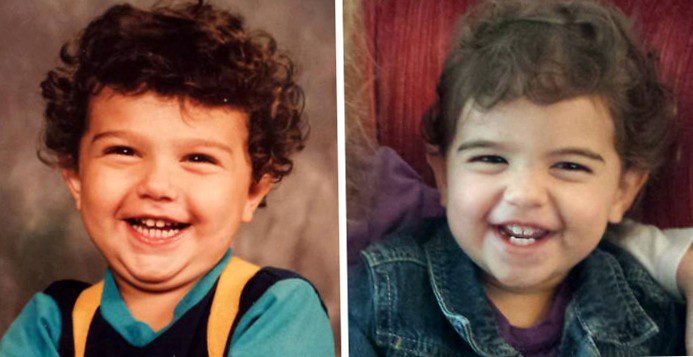The education of our children is one of the most important tasks we have as parents. We want to give our children the best possible tools to prepare them for a fulfilling and happy life. However, it turns out that our own experiences as children often influence our approach to parenting.
Although we strive to be different from our parents, there is a striking similarity in our behavior and attitudes toward our children. Many of the behavior patterns and beliefs we learned as children we unconsciously carry forward into our own parenthood.
It is important to be aware of the similarities between parents and children to gain a sense of how deeply our own experiences are embedded in our behavior as parents. By being aware of these similarities, we can critically rethink and adjust our approach to child rearing to ensure that we are providing the best possible future for our children.
Parental imprinting and its effects on our future life
Raising children is a complex matter that is influenced by many factors, including the imprint of our parents. This imprint has a significant impact on our personality development and can influence our behavior, our attitudes and our decisions.
Often we are not even aware of how strongly the imprinting by our parents influences our lives. We adopt many behavioral patterns and ways of thinking that we learned from our parents in childhood. Even if we later make a conscious effort to break away from these patterns, some of them often remain deeply embedded in us.

It is important to become aware of this imprinting and to reflect on the extent to which it still influences us today. Only in this way can we break away from outdated ways of thinking and behavior patterns and develop our own personality. A conscious examination of the imprinting by our parents can help us to know ourselves better and to free ourselves from old behavior patterns.
- What influence did your parents have on your personality development??
- To what extent did you inherit behavior patterns and ways of thinking from your parents?
- How can you break away from parental imprinting and develop your own personality??
It is important to ask yourself these questions and to actively address your own imprinting. Only in this way can we become self-determined and independent individuals who shape their lives according to their own ideas.
The adoption of educational methods in the upbringing of children
Parenting methods have a great influence on the development of children. Parents are usually guided by the parenting methods of their own parents. When they become parents themselves, they often adopt these methods or adapt them to their own needs and beliefs.
It is interesting to observe how parenting methods have changed over time. In the past, authoritarian parenting methods such as punishment and reward were very common. Today, parents are encouraged to focus on positive reinforcement and empathy to build healthy relationships with their children.
However, it remains questionable whether adopting the methods of upbringing is a good idea. It is important to be aware that each family is unique and that parenting methods may vary depending on the child. Parents should not be afraid to try new methods and adapt to their children’s needs.
- Overall, the adoption of parenting methods is a natural part of raising children. However, there is no "right" way to raise children. Parents should be aware that each approach has advantages and disadvantages, and that it is important to adapt to each child’s needs and be sensitive to promote healthy development.
Contemporary parenting: today’s parents compared to the past
The way parents raise their children has changed a lot over the years. In today’s world, the focus is on loving and sensitive parenting, whereas in the past, authoritarian and disciplinary parenting prevailed.
Today’s children are accustomed to growing up in an environment where they are taken seriously and their opinions matter. They are no longer punished as often, but instead are taught about their actions and why certain behaviors are not acceptable.

- Before: Authoritarian parenting, children are punished
- Now: loving upbringing, children are treated sensitively
Parents of today understand that children have their own personalities and that their special characteristics should be supported. Focusing on physical punishment or ignoring children’s needs and opinions is no longer part of a good parenting style today.
It is important for today’s parents to establish a positive and open relationship with their children. Children should be able to express their confidence and insecurities without fear of being punished or ignored. Overall, parents today should work to create an environment where children can grow up loving and supportive.
Media influences on education
The way parents educate their children has changed over time. Media influences are an important factor in this change. There used to be no TVs and smartphones, so families spent more time together and had more control over what their children saw and heard. In today’s world, however, children have almost unlimited access to media content and it is difficult for parents to control that access.
Media can play an important role in education if used wisely. For example, parents can encourage their children to watch educational programs or allow them to read e-books. However, it is important to make sure that children do not spend too much time in front of screens and that the content they consume is appropriate. It can be helpful to consume media together with children, actively guiding and commenting on them as they do so.
- Advantages and disadvantages of media influences on parenting
- Television and social media have a major impact on children’s behavior. They can support language development, spark interest in other cultures, and broaden horizons. However, they can also have negative effects, such as aggression, obesity and addictive behavior.
- Another drawback is that children are often overly influenced by advertising, which can affect their consumption habits. It’s important to teach children how to deal with advertising and encourage them to be critical of it.
Overall, it is important to ensure a balanced use of media in parenting. Parents should actively engage with content and maintain open communication with their children to promote healthy media literacy.
How can we be better?
As parents, we want only the best for our children. But sometimes we realize that we are acting just like our parents. We say things we heard as children and use the same parenting strategies. We wonder if there are other ways to be better than our parents.
To be better, we need to self-reflect and rethink our parenting practices. We need to ask ourselves if what we are doing is really in the best interest of our children or if it is more for our own comfort. We need to take time to listen to our children and understand their needs. We must be willing to embrace new ideas and ways of parenting.
There are many ways in which we can be better than our parents. For example, we can remain consistent but set fair consequences instead of relying on physical punishment. We can encourage our children to be independent by allowing them to make their own decisions and take responsibility. We can focus on our children’s strengths and passions and help them achieve their goals.
- Reflect on your parenting practices
- Listen to your children
- Be willing to embrace new ideas
- Set consistent but fair consequences
- Encourage independence
- Focus on your children’s strengths and passions
Ultimately, it’s about creating a loving, supportive environment where our children can thrive and succeed. By challenging our parenting practices and engaging in new ways of doing things, we can ensure that we are the best parents possible and that our children have the best childhood possible.